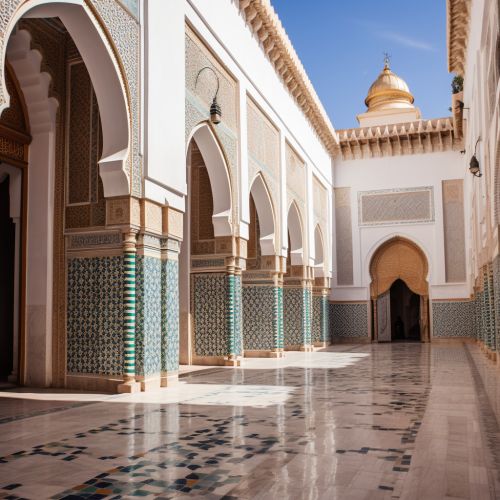Al-Qarawiyyin
History
The University of Al-Qarawiyyin, also known as Al-Karaouine, is a university located in Fes, Morocco. It was founded by Fatima al-Fihri in 859 with an associated madrasa, which subsequently became one of the leading spiritual and educational centers of the historic Muslim world. It was incorporated into Morocco's modern state university system in 1963.


Foundation
Fatima al-Fihri, who was a woman from Tunisia, is credited with having founded the Al-Qarawiyyin in 859 CE. Her family had moved to Fes from Kairouan, hence the name of the university. She inherited a large fortune from her father, which she used to construct the mosque and associated school.
Architecture
The architecture of Al-Qarawiyyin is a marvel of traditional Moroccan design, with features such as the expansive courtyard, the minaret, and the prayer hall. The library, one of the oldest in the world, has been recently renovated and is home to numerous ancient texts.
Education
Education at Al-Qarawiyyin University has changed drastically throughout its history. Originally, the madrasa focused on religious instruction and Qu'ran memorization in accordance with the Maliki school of Islamic law. Over time, the curriculum expanded to include a wide range of subjects, including the natural sciences, mathematics, and languages.
Influence
Throughout history, Al-Qarawiyyin has played a leading role in the cultural and academic relations between the Islamic world and Europe. The university has been a center for the exchange of knowledge, with scholars traveling from far and wide to study and teach. This has had a significant influence on the development of modern sciences and humanities.
Modern Era
In the modern era, Al-Qarawiyyin has been incorporated into Morocco's state education system, and it now offers degree programs in Islamic studies, Arabic literature, and humanities. The university is also a center for interfaith dialogue and has a significant influence on contemporary Islamic thought.
